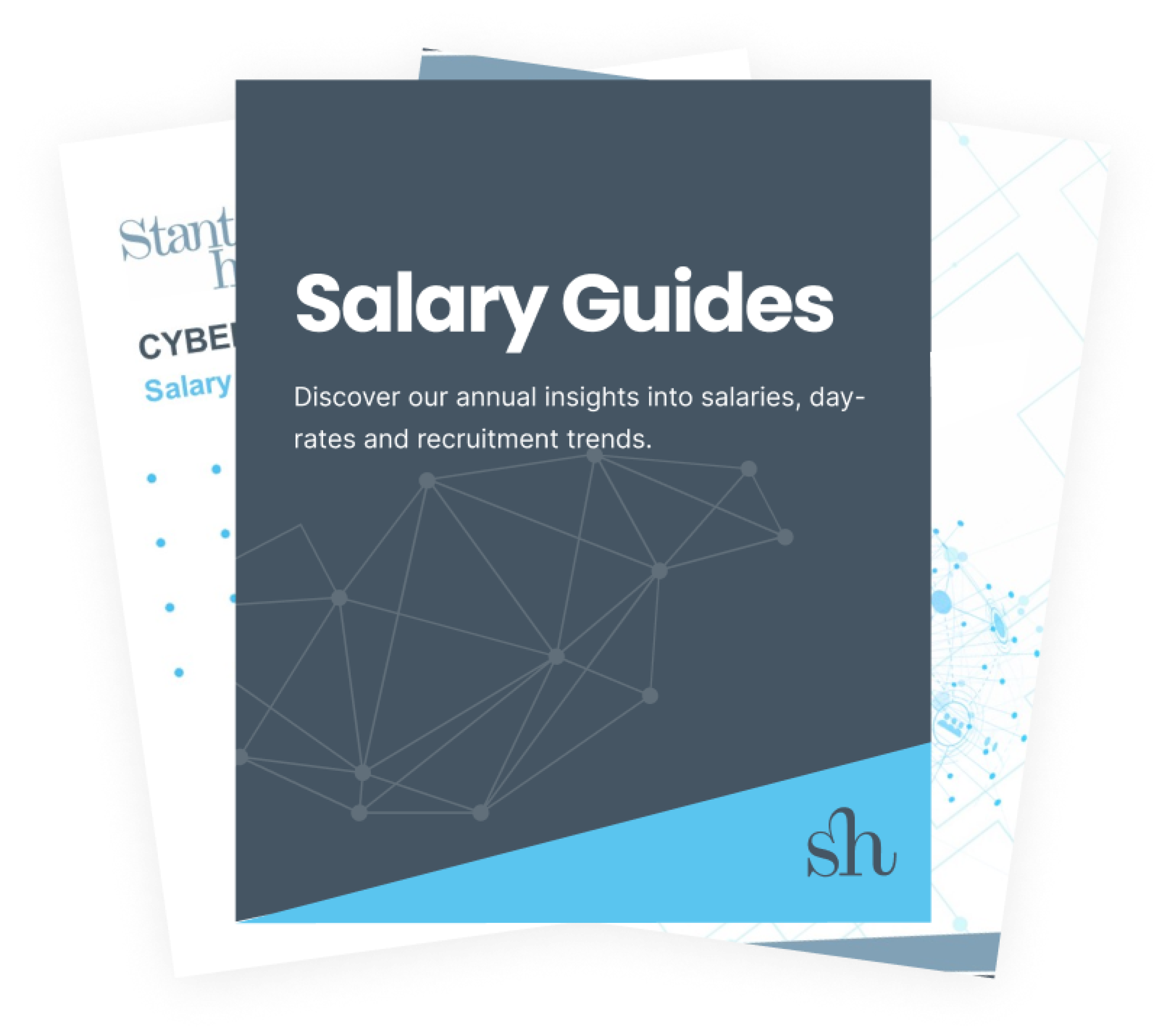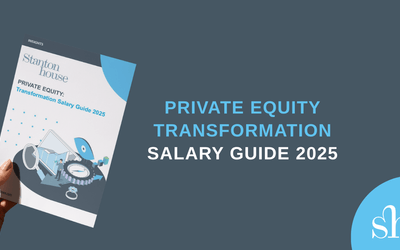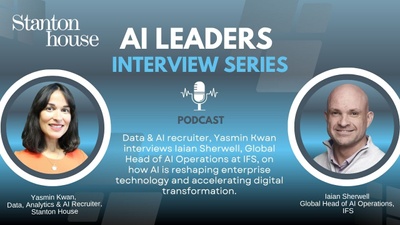
Breaking Barriers: Strategies for Socio-Economic Diversity in Hiring & Leadership
In recent times, DEI initiatives have faced some backlash, particularly in the United States. Despite this, I firmly believe that diversity and inclusion are essential for thriving in today’s competitive business environment - a principle we uphold at Stanton House.
One critical but often overlooked aspect of DEI is socio-economic diversity. It’s a topic I delved into previously in my article, Diversity Hiring & Merit – What Hiring the Best Really Means.
Given the current challenges surrounding DEI, I’m revisiting socio-economic diversity to explore how companies, often unintentionally, create barriers that prevent talented individuals from less privileged backgrounds from accessing opportunities. I also offer practical strategies for breaking down barriers in hiring and leadership.
Degree Requirements: An Unnecessary Barrier
For decades, degree requirements have been a cornerstone of hiring processes, yet they disproportionately exclude candidates from lower socio-economic backgrounds.
Recent data highlights this imbalance at the leadership level: 28% of UK board members attended private schools, despite only 7% of the population being privately educated. Additionally, over 70% of board members come from professional (high socio-economic) backgrounds, while only 15% represent lower socio-economic groups. These statistics reveal systemic biases that perpetuate exclusion.
Research indicates that while degrees may demonstrate specific skills or discipline, they are not definitive predictors of job performance. Talented individuals from less privileged backgrounds are equally capable but often face exclusion from elite universities and exclusive professional networks.
At Stanton House, we’ve successfully hired individuals without degrees, focusing instead on their attitude and mindset. We believe that many recruitment skills can be developed on the job! While this approach may not suit every profession or industry, it’s crucial to have an open and fair discussion about the specific skills truly needed for success in a role - and to assess whether a degree is genuinely the best indicator of those skills.
Companies like Google and EY have removed degree requirements for many roles, focusing instead on skills-based assessments.
Organisations can follow suit by redefining job descriptions to focus on skills rather than credentials. Apprenticeships, bootcamps, and training programmes offer alternative pathways for talent to join industries traditionally dominated by degree holders. These strategies not only widen the talent pool but also foster loyalty among employees who value growth opportunities. Blind CV screening, removing details about education and address, is another effective tool to minimise bias.
Addressing Socio-Economic Barriers in Private Equity
The Private Equity (PE) sector has long been scrutinised for its lack of diversity, particularly concerning socio-economic backgrounds.
The sector remains heavily influenced by traditional recruitment practices, which often favour candidates from elite universities and established networks. This approach not only perpetuates socio-economic disparities but also limits the innovation and adaptability that diverse perspectives bring.
“Private Equity's model is still very old-fashioned, you either fit into it or you don't. PE firms are generally made up of people who are very similar to each other, they all went to the same universities.” Elizabeth Wallace, a seasoned Chief People Officer and VP of People at Superbet, a Blackstone Portfolio Company.
While challenges persist, there are notable efforts within the Private Equity sector to enhance socio-economic diversity. Blackstone, a leading global investment firm, has implemented its Career Pathways Programme, designed to recruit and develop talent from underrepresented groups. This initiative leverages partnerships with organisations such as Year Up and SkillBridge to offer internships and training opportunities, which have led to over 100 new hires transitioning to full-time roles. Additionally, Blackstone’s ownership equity programmes, including providing stock options to employees of acquired companies, aim to address income inequality and align interests across all levels of the organisation.
Research further underscores the business case for these efforts. The value of deals led by diverse Private Equity and Venture Capital firms has grown at nearly twice the rate of non-diverse firms between 2018 and 2022. Such growth highlights how diversity not only enhances innovation but also drives superior financial outcomes.
Recognising non-traditional qualifications & life experiences as valuable assets
Last year Stanton House interviewed Wil Wadsworth, the Group CFO at Netomnia and YouFibre. Wil discussed his early career in finance, the transition to Private Equity, and the pivotal experiences that shaped his career. Wil’s career journey, which spans over a decade, is a testament to the potential of talent from non-traditional backgrounds to excel in leadership roles.
Growing up, financial pressures and family responsibilities prevented him from pursuing a university degree. Instead, he embarked on a career in finance through alternative qualifications, starting as an accounts payable assistant and earning certifications like AAT and CIMA. Today, Wil leads one of the UK’s most dynamic telecommunications companies, having helped raise over £1 billion in funding.
His journey underscores the importance of recognising non-traditional qualifications and life experiences as valuable assets, offering a powerful example for the Private Equity sector to broaden its talent criteria.
Watch the full interview here.
Why Leadership Needs Socio-Economic Diversity
Leadership teams often mirror an organisation’s socio-economic bias. In the UK, 84% of boards do not measure the socio-economic backgrounds of their members, and 69% of nomination committees fail to address this aspect during succession planning. This lack of monitoring perpetuates inequities and limits diverse perspectives at the top.
Yet, diverse leadership delivers clear benefits. Companies with inclusive leadership make better decisions, drive innovation, and resonate with broader customer bases.
Several leading financial firms are addressing this gap by offering alternative pathways to professional qualifications. These initiatives allow individuals from diverse socio-economic backgrounds to enter the industry without the traditional requirement of a university degree.
For example, PwC’s 'Flying Start' program combines university education with practical work placements, enabling participants to earn a salary, gain professional qualifications, and graduate with less debt. Such programs are transforming access to careers in finance, reducing barriers for talented individuals from underrepresented groups.
JPMorgan’s recent initiative in the UK further exemplifies this shift. By expanding its skills-based hiring approach within its operations division and de-emphasising degree requirements, the company aims to attract individuals from diverse socio-economic backgrounds.
Practical Steps for Companies
To build a truly inclusive workforce, companies must take deliberate action:
1. Audit Hiring Practices: Evaluate whether current recruitment methods disproportionately favour candidates from privileged backgrounds. Ensure job descriptions are inclusive and free from language that might deter non-traditional applicants.
2. Broaden Hiring Criteria: Look beyond traditional academic credentials to identify candidates with practical experience and resilience.
3. Emphasise Skills-First Hiring: Focus on identifying the core competencies and skills required for a role rather than prioritising academic credentials. Use practical assessments or real-world tasks during the hiring process to evaluate candidates’ capabilities.
4. Recognise Alternative Qualifications: Such as certifications from online learning platforms (e.g., Coursera, Google Career Certificates).
5. Invest in Training: Provide hiring managers with bias training, particularly on recognising socio-economic factors. This ensures that candidates from diverse backgrounds are evaluated fairly.
6. Create Pathways: Develop programmes like paid internships, apprenticeships, and on-the-job training. For instance, IBM’s apprenticeship programme has successfully onboarded diverse talent by offering paid training that leads to permanent roles.
7. Redefine Success: Shift the narrative around what makes a candidate "qualified." Attributes like adaptability, problem-solving, collaboration, and resilience—often gained through life experiences - are invaluable and can be assessed through structured interviews or work simulations.
8. Measure Impact: Track socio-economic diversity metrics alongside other DEI measures to ensure progress. Share these metrics transparently to demonstrate commitment to inclusivity.
9. Prioritise Mentorship: Establish mentorship opportunities to support employees in navigating corporate challenges and advancing their careers. Reverse mentorship, where junior employees from diverse backgrounds advise senior leaders, is another innovative way to bring fresh perspectives to leadership.
Conclusion
Breaking down socio-economic barriers in hiring and leadership is not only a step towards equity but also a strategic advantage. By expanding their definition of talent and implementing inclusive practices, companies can unlock the full potential of their workforce. Socio-economic diversity fosters innovation, drives engagement, and positions organisations as leaders in a rapidly evolving business landscape. It’s time to rethink what makes a candidate “qualified” and pave the way for a more inclusive future.
Sources:
· KPMG - Uncovering Social Mobility in the Boardroom 2022



















